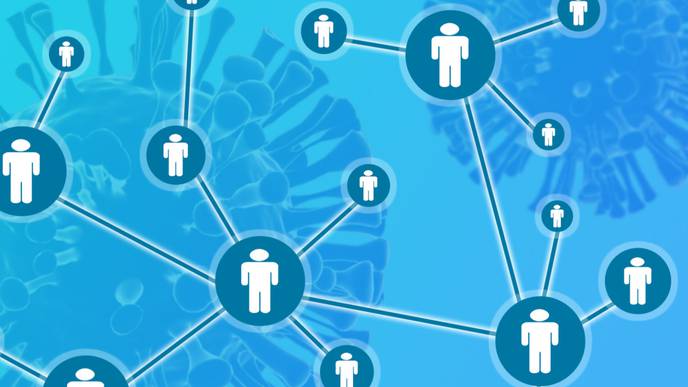COVID-19: How Effective Was Contact Tracing?

01/31/2024
Based on data from Geneva, Switzerland, a team from the UNIGE and the HUG assessed the effectiveness of contact tracing in controlling the pandemic.
The effectiveness of contact tracing depends in particular on the characteristics of the disease in terms of symptoms, contagiousness and modes of transmission. © iStock
During the COVID-19 pandemic, Switzerland, like many other countries, relied on contact tracing to identify people likely to have been contaminated by an infected acquaintance. Has this strategy, which is standard in epidemic outbreaks, proved effective in interrupting viral transmission? Epidemiologists from the University of Geneva (UNIGE) and the Geneva University Hospitals (HUG) have analysed the data collected in Geneva. Overall, 40% of people infected were identified via sick acquaintances. This rate fluctuated, however, depending on the variant involved, the type of housing, and neighbourhood wealth. These results, published in the journal EuroSurveillance, suggest that monitoring contacts alone is not enough to control certain epidemics. It needs to be supplemented by a range of measures that take into account the specific features of each disease.
Contact tracing aims to identify people who have been in contact with an infected person so that they can be treated before they further transmit the disease.
/Public Release. This material from the originating organization/author(s) might be of the point-in-time nature, and edited for clarity, style and length. Mirage.News does not take institutional positions or sides, and all views, positions, and conclusions expressed herein are solely those of the author(s).View in full
here.

Facebook Comments